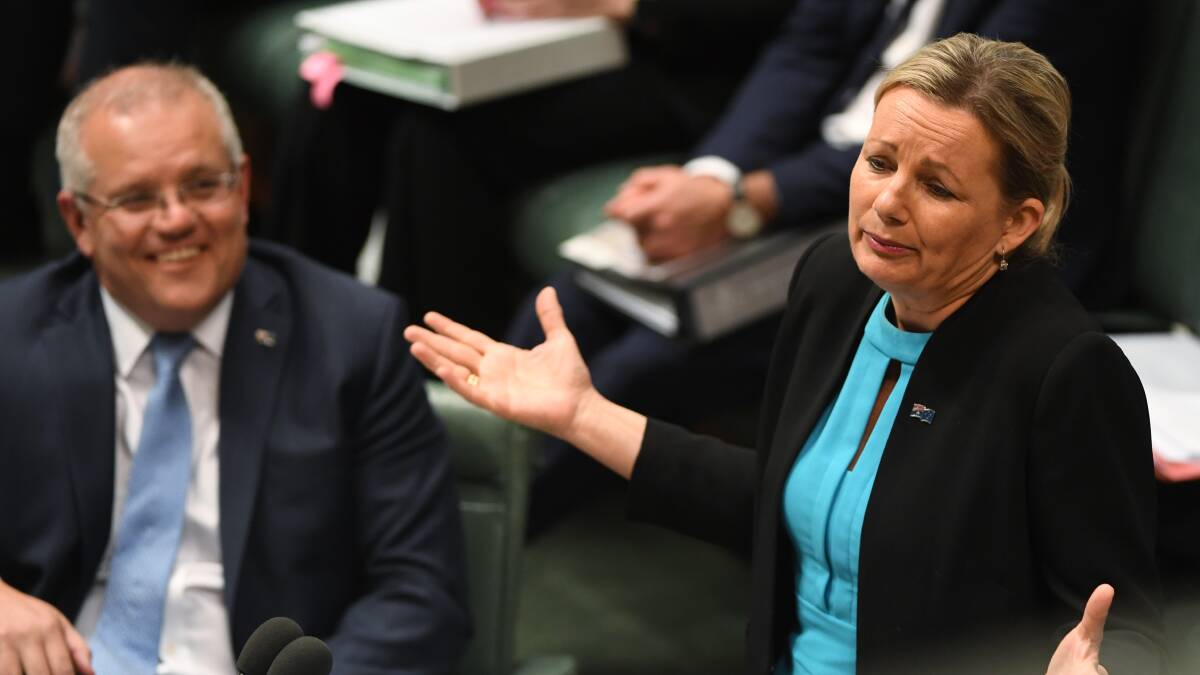
There have been many surprises in my six and a half decades - but here's the surprisingest.
I discovered last week that the government has no duty of care towards me. It also doesn't have a duty of care to children or young people. It certainly doesn't appear to have any duty of care to the environment.
How do I know this? Well, a court ruled this week that the Australian government does not owe the country's children protection from harm caused by climate change. A full bench of the Federal Court unanimously ruled in favour of an appeal by Environment Minister Sussan Ley, reversing a decision by a previous judge that legally recognised a duty of care.
Young people are at the very front of environmental activism. That's pragmatic. They fear they can see their futures disappear in a haze of smoke, and that fierce energy terrifies older folks. Sadly, that energy took a beating in the face of the court's decision last week.
As an old person, I felt even more disheartened when I heard the minister talk about the case with the ABC's Patricia Karvelas. Karvelas asked: "Minister, on the court ruling that you don't have a legal duty of care to young people to consider climate change when approving projects. What about a moral duty of care? Wouldn't people expect no less from the Environment Minister?"
Ever hear a question from a journalist and then stop doing what you are doing so you can pay attention to the answer with every fibre of your being?
Ley's response was devastating. Let's go through it shall we?
She told the ABC: "I understand that there's been an emotional response to the duty of care question in this particular case. I do care about the climate. I do care about the children. I do respect that advocacy."
Does anyone think this is genuine? Ley has presided over a host of cuts to environmental protection, gaily sacrificing everything from koala habitat to the health of the Great Barrier Reef as she goes along. She appears to me to put development first and the climate last. So when she told the ABC she makes decisions in "the interests of all Australians every single day", I was shocked. I'd argue Ley, along with her Coalition partners in the Nationals, have worked to undermine environment protections on the reg. Ley may well be aware of her statutory obligations under the Environmental Protection and Biodiversity Conservation Act (EPBC), but surely there should be a higher calling - the calling to consider the future of all of us?
Cristy Clark, program director of the law degree at the University of Canberra, says this week's finding was based entirely on the black-letter interpretation of the law - what was in the EPBC and what it means in its very narrowest sense. But she says there is still much to comfort all of us in the decision (which is a relief, because it felt utterly crushing).
First, the judges found the facts were solid. Climate science is real, and climate change is catastrophic (this is good, because this government still acts like these two are up for discussion).
Second, the judges asked the plaintiffs to correspond with the court - and that means, thirdly, the judges think there are bigger questions to be asked and answered.
"All three judges made a point of saying they didn't want to preclude any action on further submissions on climate change," Clark points out.
That means the judges have left it open for the applicants to use some other case. May I suggest Adani?
Clark says the minister's argument was that a decision for the applicants would have led the court into making political decisions, the appropriate domain of government (if only we had a government which was interested in the public good). That decision would then have encouraged others to bring cases, which might have forced governments to act - in other words, using courts for lawfare.
"And the kids are saying, 'Governments are not doing it, so someone has to'," Clark says.
MORE JENNA PRICE:
Eve Mayes, a youth climate activism researcher at Deakin, says young people connected with the case and involved in climate justice activism have expressed their deep frustration and disappointment with the Sharma decision.
"But they have also articulated determination to contest and continue their collective activism against government complacency on climate change," she says.
"The timing of this decision, 10 days before the March 25 School Strike and election actions, seems to be further galvanising the diverse climate justice movement."
Remember when Scott Morrison talked about wanting to see "more learning in schools and less activism in schools"? You know how you respond when someone like that tries to tell you what to do?
Mayes says: "This decision may, perhaps inadvertently, strengthen public awareness and concern about governmental climate policy."
And it might not only do so among the young. The Sydney Environment Institute's Blanche Verlie cites the response from Anjali Sharma (after whom the case is named), who spoke of her despair and her hopes for the future.
"This is not the end. Activists have collectively faced so many setbacks, and this is a battle not a war. The case reveals that our political representatives don't care and don't believe they have a moral responsibility," Verlie says.
"And we have to remember that there are many other approaches. Law is just one approach in a vast realm. Sadly our politicians see nature as a resource, and don't consider it as something meaningfully relevant and embedded in all our lives."
After a hint about Australia's future? Here's the minister again, talking about her government's proposed bioregional planning approach: "We will recognise that protecting the environment can be done in a way that respects and supports development."
Does anyone believe her?
- Jenna Price is a visiting fellow at the Australian National University and a regular columnist.


